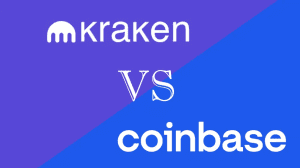Centralized Vs. Decentralized Exchanges – CEX And DEX Guide

Cryptocurrencies have revolutionized how we think about money, transactions, and investments. Their popularity introduced a new breed of trading platforms known as crypto exchanges. These exchanges offer a way to buy, sell, and trade cryptocurrencies, and they can be either centralized or decentralized.
Centralized exchanges, or CEXs, are operated by a central authority that controls the funds and user data. On the other hand, decentralized exchanges, a.k.a. DEXs, are built on blockchain technology, where users have control over their funds and personal information.
Both exchanges have their own set of advantages and disadvantages, and it is essential to understand them before deciding which one to use. Our guide fully explains everything you need to know about centralized vs. decentralized in plain English – no technical jargon.
Centralized Vs. Decentralized – The Short Read
Key points you need to know:
- Centralized exchanges – operated by a single authority – are more popular among traders.
- CEXs are easier to use, have a wide range of cryptos, and offer faster transactions.
- Decentralized exchanges use blockchain technology where users have total control.
- DEXs offer better security, privacy, and transparency and are not subject to regulations.
- Verdict: Beginners are better off with CEXs, but DEXs are likely the future industry standard.
Centralized Crypto Exchanges
CEXs are the most popular type of crypto exchange and are often the first choice for many traders. Centralized exchanges are owned by a single entity, which makes them more susceptible to security breaches and hacking attacks. However, CEXs offer several advantages, making them an attractive option for traders.
One of the main advantages of CEXs is their user-friendliness. These exchanges are easy to use, even for beginners, and they offer a range of tools and features to help customers make informed decisions. CEXs also offer high liquidity, meaning users can buy and sell cryptocurrencies quickly and easily.
Another advantage of centralized exchanges is that they often offer a wide range of cryptocurrencies. As a result, traders have access to a diverse portfolio of assets, which can help minimize risk and increase returns. Additionally, they often have better customer support than their decentralized counterparts.
PROS
- User-friendly
- High liquidity
- Wide range of cryptos
- Customer support
CONS
- Security
- Privacy
- Centralization
- Subject to regulations
Decentralized Crypto Exchanges
DEXs are a newer type of crypto exchange, and they are built on blockchain technology. Unlike centralized exchanges, they do not have a single authority that controls the funds and user data. Instead, these exchanges use a decentralized network, where users have control over their funds and personal information.
One of the main perks of decentralized exchanges is that they offer enhanced security. Since blockchain technology is at the core of DEXs, they are less susceptible to hacking attacks and security breaches. Additionally, they do not require users to provide personal information, which can help to protect their privacy.
Furthermore, they are more transparent than centralized exchanges, allowing users to see all their activities because the blockchain records all transactions. Therefore, tracking trades and ensuring everything is above board is more manageable.
PROS
- Decentralization
- Anonymity
- Transparency
- No regulations
CONS
- Limited liquidity
- Complex interface
- Slow transaction times
- No customer support
FAQ
Learn more about CEXs and DEXs.
What is the difference between centralized and decentralized exchanges?
Centralized exchanges have a central authority in charge and require users to deposit funds into their platform. Decentralized exchanges, on the other hand, operate on a peer-to-peer network and allow users to trade cryptocurrencies without the need for a middleman.
Which type of exchange is more secure?
Decentralized exchanges are generally considered more secure than centralized exchanges, as they do not rely on a central authority to hold funds. However, they can still be vulnerable to hacking attacks and other security threats.
Are there any regulations that govern DEXs?
Decentralized exchanges are not subject to the same regulations as centralized exchanges. However, this can also make them riskier for users, as regulatory bodies have no oversight.
Which type of exchange is better for beginners?
Centralized exchanges are generally considered more user-friendly and may be a better fit for beginners who are new to cryptocurrency trading.
Can I withdraw my funds easily from a CEX?
Withdrawal processes on centralized exchanges can vary, but most platforms allow users to withdraw funds easily.
Centralized Vs. Decentralized – Final Verdict
Ultimately, choosing between centralized and decentralized exchanges comes down to personal preference and risk tolerance. If you are new to crypto trading, a centralized exchange may be the best option. However, a decentralized exchange may be the way to go if you are concerned about security and privacy.
In conclusion, it is essential to do your research and understand the pros and cons of each type of exchange before making a decision. Regardless of which type of exchange you choose, always remember to keep your crypto assets safe by using strong passwords and enabling two-factor authentication.
Crypto trading (trading in general, actually) is always a risky business because the industry is volatile. Therefore, make smart choices and don’t invest more than you can afford to lose.






2 thoughts on “Centralized Vs. Decentralized Exchanges – CEX And DEX Guide”